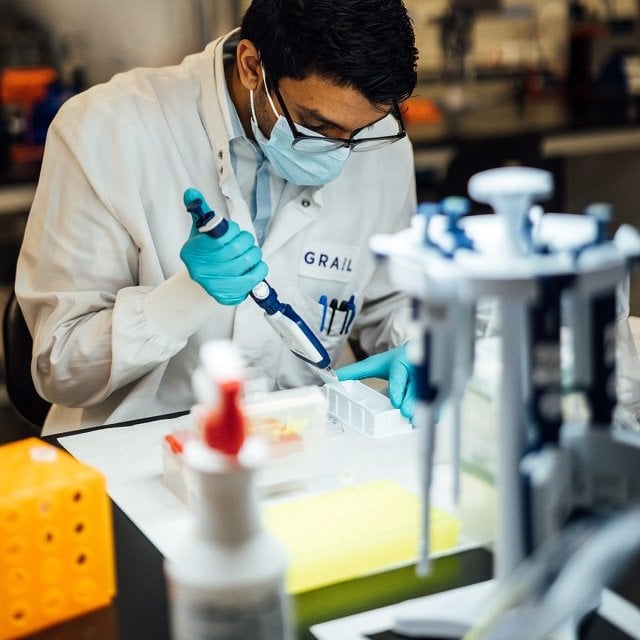Longevity Moonshots

What You Need to Know
The Grail MCED test can detect more than 50 different types of cancer.
Offering access to the test might be a way for life insurers to reach out to consumers.
One big challenge is managing financial constraints.
The biotech industry has continued to forge new paths in research and development, offering innovative and potentially life-extending solutions to the public.
Life insurance companies, on the other hand, have not traditionally been major participants in promoting such medical advancements.
However, as we have seen in many industries, technological developments are creating not only historic achievements for patients and medical professionals, but also new opportunities for life insurers to take a more proactive approach to help improve public health.
One example is through partnerships with biotech disruptors.
A Multi-Cancer Detection Test
Going beyond collecting premiums and paying claims, insurers now have an opportunity to play a more active role in promoting promising new health-improvement developments, potentially disrupting the traditional relationship between life insurers and the insured and positioning insurance carriers as health advocates.
In one such case, Munich Re Life US has partnered with Grail to bring the biotech innovator’s breakthrough multi-cancer early detection, or MCED, test to U.S. life insurance carriers and policyholders.
Through clinical studies, the test has demonstrated the ability to detect signals from more than 50 types of cancer, more than 45 of which currently lack recommended screening tests.
New technologies like MCED have the potential to meaningfully alter mortality outcomes at a population level, presenting a natural alignment of interests between life insurance companies and policyholders to help increase access to these types of technologies.
And this is not just a priority for private industry — President Joe Biden identified the development of MCED tests as a priority for the White House’s “Cancer Moonshot” initiative earlier this year.
Offering Grail’s multi-cancer early detection test may be a first step for the life insurance industry to develop long-term engagement with policyholders.
Further, the potential for insurers to become longevity advocates for customers is an exciting change for the industry.
Potential Challenges
To achieve such transformation, there are a few challenges that need to be considered and addressed.
1. User Barriers
Any cutting-edge product or technology comes with challenges to make potential users aware of it, help them understand how they can benefit from it and, most importantly, convince them that it will be a value-add to their care.
And if those hurdles can be overcome, the new product must be accessible.
Life insurers can and should take a more active role in helping policyholders obtain access to these new products and technologies that could have a profound impact on their health outcomes.
2. Regulatory Landscape




